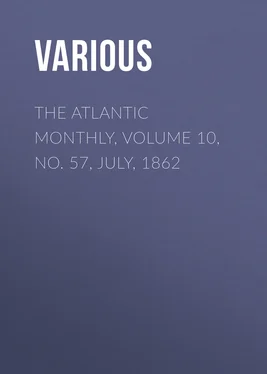Among such songs is one by Bayard Taylor, entitled Annie Laurie , which is of the very best kind.
Braga was the name of the goblet over which the Norse drinkers made their vows. Probably no Secessionist ever threatened more pompously over his whiskey. The word goes back a great distance. Paruf is Sanscrit for rough, and Ragh , to be equal to. In reading the Norse poetry, one can understand why Brága was the Apollo of the Asa gods, and why the present made to a favorite Scald was called Bragar-Laun ( Lohn ). Bravo is also a far-travelled form.
Laing's Sea-Kings of Norway , Vol. II. p. 312; Vol. III. p. 90.
A. De Gerando, La Transylvanie et ses Habitants , Tom. II. p. 265, et seq.
It is proper to state that an attack has lately been made in Germany upon the authenticity of the story of Winkelried, on the ground that it is mentioned in no contemporaneous document or chronicle which has yet come to light, and that a poem in fifteen verses composed before this of Halbsuter's does not mention it. Also it is shown that Halbsuter incorporated the previous poem into his own. It is furthermore denied that Halbsuter was a citizen of Lucerne. In short, there was no Winkelried! Perhaps we can afford to "rehabilitate" villains of every description, but need therefore the heroic be reduced to déshabillé ? That we cannot so well afford. We can give up William Tell's apple as easily as we can the one in Genesis, but Winkelreid's "sheaf of Austrian spears" is an essential argument against original sin, being an altogether original act of virtue.
Once, the year before, at Granson.
It is sometimes spelled landsknecht , as if it meant country-fellows , or recruits,—men raised at large. But that was a popular misapprehension of the word, because some of them were Suabian bumpkins.
The French soldier-song about Marlborough is known to every one.
Who besings himself thus, in a song from the Solferino campaign:—
"Quand l'zouzou, coiffé de son fez,
A par hasard queuqu' goutt' sous l'nez,
L'tremblement s'met dans la cambuse;
Mais s'il faut se flanquer des coups,
Il sait rendre atouts pour atouts,
Et gare dessous,
C'est l'zouzou qui s'amuse!
Des coups, des coups, des coups,
C'est l'zouzou qui s'amuse."
This was first said by Rudolph of Erlach at the Battle of Laupen, in 1339, fought between citizens of Berne and the neighboring lords. The great array of the nobles caused the rear ranks of the Bernese to shrink. "Good!" cried Erlach, "the chaff is separated from the wheat! Cowards will not share the victory of the brave." —Zschokke's History of Switzerland , p. 48, Shaw's translation.
His queen
Marshal Schwerin, seventy years of age, who was killed at the head of a regiment, with its colors in his hand, just as it crossed through the fire to the enemy's intrenchments.
The King's brother.
A corps of foot-soldiers in the Austrian service, eventually incorporated in the army. They were composed of Servians, Croats, etc., inhabitants of the military frontier, and were named originally from the village of Pandúr in Lower Hungary, where probably the first recruits were gathered.
Sange til Brug før blandede Selskaber , samlade af FREDERIK SCHALDEMOSE. 1816. Songs for Use in Social Meetings, etc.
Mr. Froude mentions that a request that the King would marry, similar to that which he received after the fall of Anne Boleyn, was urged by the Council on the death of Jane Seymour; but, as he allowed more than two years to elapse between the date of Jane's death and the date of his marriage with Anne of Cleves, which marriage he refused to consummate, is not the inference unavoidable that he wedded Jane Seymour so hurriedly merely to gratify his desire to possess her person, and that in 1537-39 he was singularly indifferent to the claims of a question upon his attention?
Henry thought of divorcing Catharine of Aragon some years before she had become too old to bear children. She was born in the last month of 1485, and the "King's secret matter," as the divorce question was called, was in agitation as early as the first half of 1527, and probably at an earlier period. Catharine was the mother of five children, but one of whom lived, namely, the Princess Mary, afterward Mary I.












